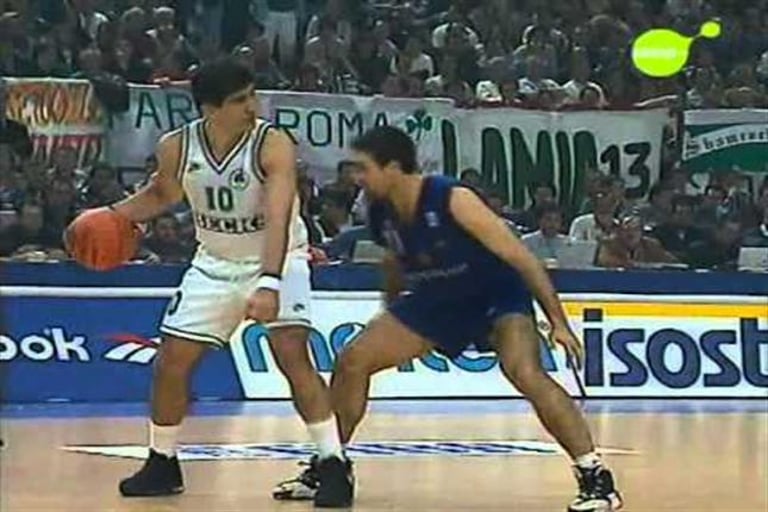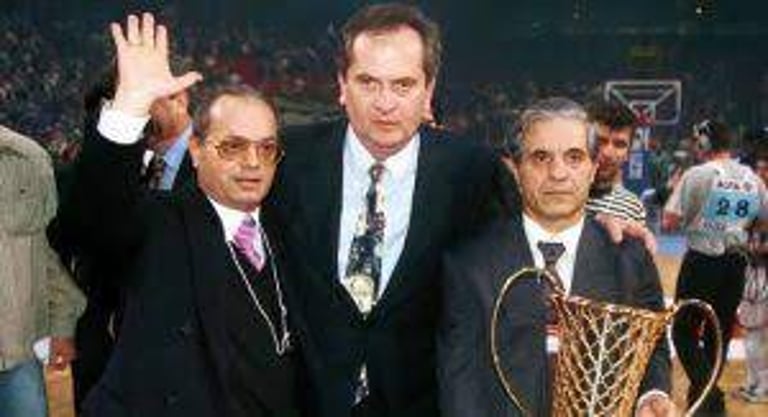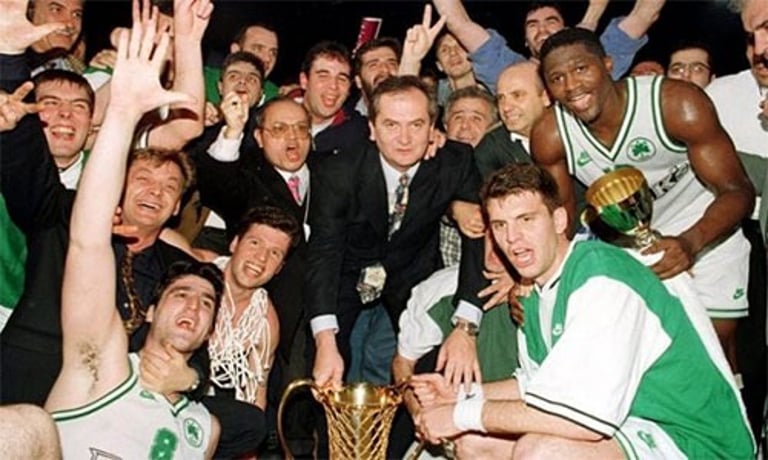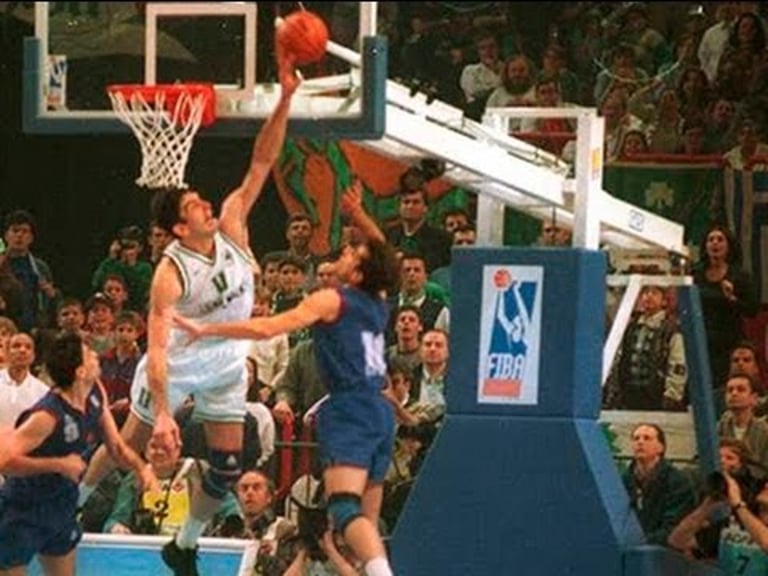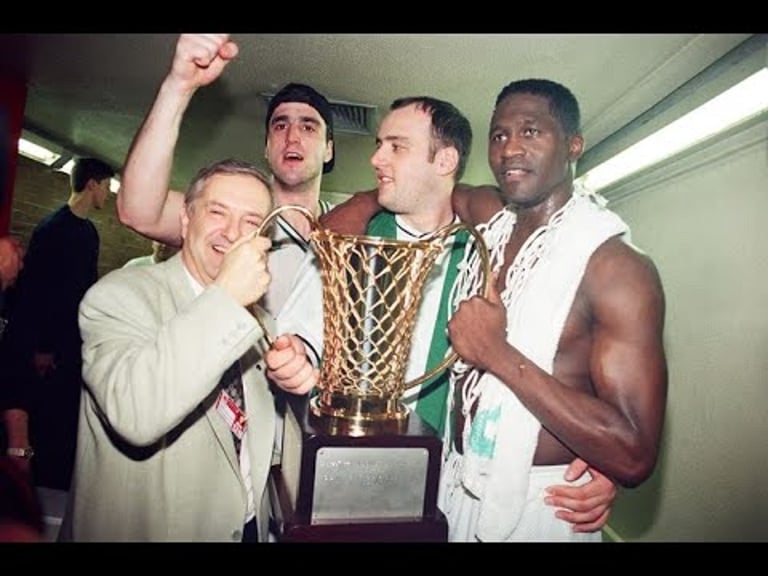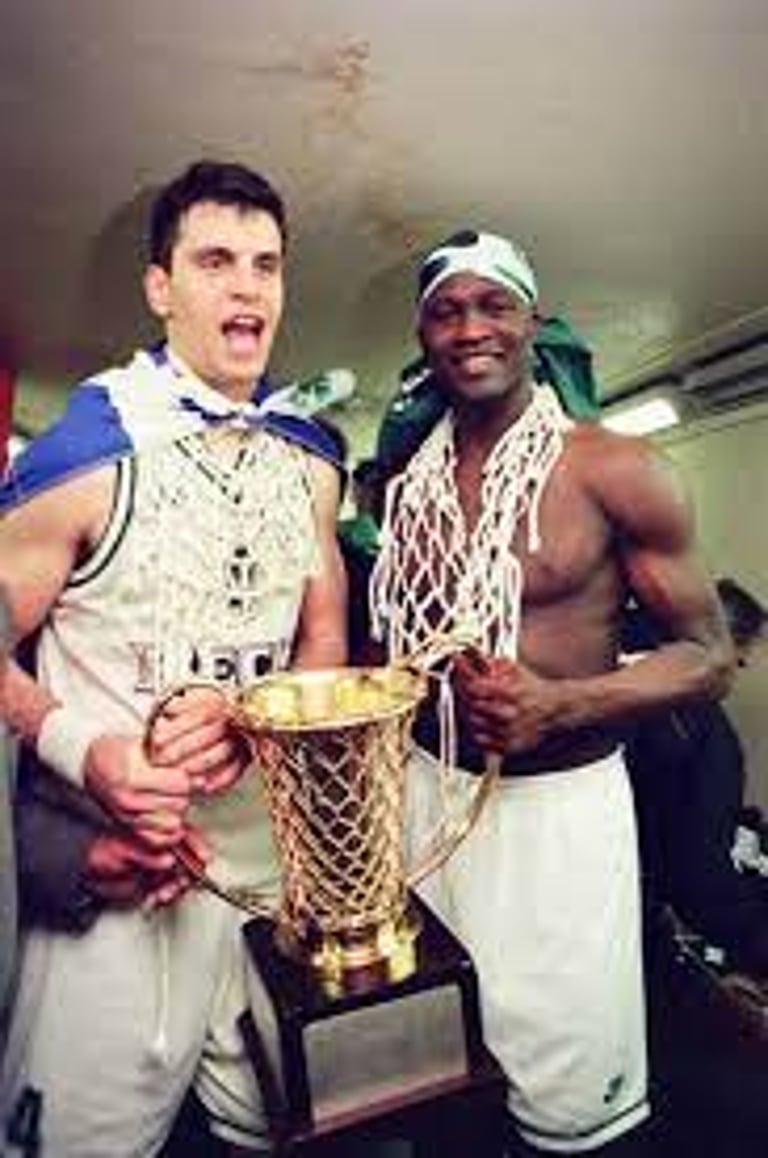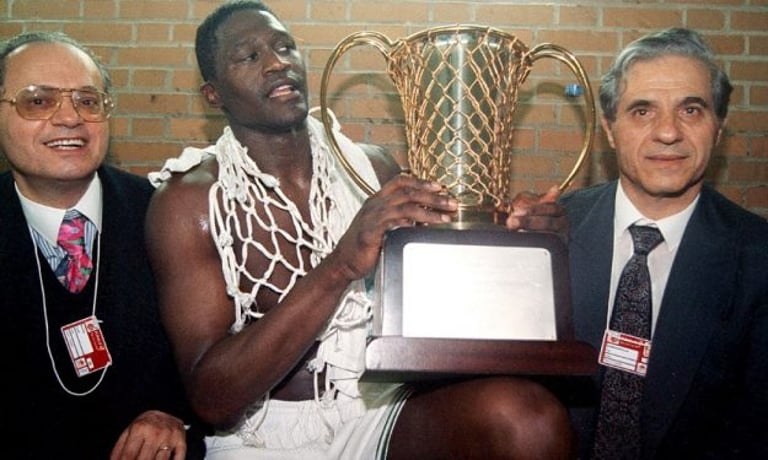
Final Four - Paris 1996
"Early resurrection"
RETROFFF (FINAL FOUR FOLKLORE)
Antreas Tsemperlidis
4/17/20254 min read
How many of you remember that, until just a few years ago, the Final Four often coincided with Holy Week - either Orthodox or Catholic? That was exactly the case in 1996, when the Final Four took place in Paris during Holy Week - and when Greek basketball eventually claimed its first European Champions Cup.

Here is the 3rd piece of our Final Four Folklore thematic. We are doing a fast-travel from our previous piece, as these lines are written during the week o Easter and you are about to see why... Narrated by our Retro expert Antreas, lay back, relax and witness how the F4 story continued to unfold...
Greece's representative in the City of Light, which hosted the tournament from April 9 to 11, was Panathinaikos. This time, they stood alone - Olympiakos, their eternal rival and the team that had twice in a row denied them a place in the final, had fallen to Real Madrid in the quarterfinals. But Panathinaikos’ road to glory was anything but smooth. The previous summer, the Giannakopoulos brothers, determined to conquer both Greece and Europe, dug deep into their pockets and made a blockbuster signing: Dominique “The Human Highlight Film” Wilkins, one of the biggest names in the NBA and probably to date the biggest name to ever cross the Atlantic to join a European team. But they didn’t stop there. Alongside Wilkins, they brought in key additions like John Korfas from PAOK and the rising sharpshooter Tzanis Stavrakopoulos from Ampelokipoi. The core -Giannakis, Alvertis, Oikonomou, and Stojan-remained intact. To guide this ambitious squad, they turned to one of the era’s top tacticians: Božidar Maljković. But assembling this star-studded team was no easy task. From the outset, tension simmered between Maljković and Wilkins. The coach, who had never truly wanted Wilkins on the roster, demanded that the 35-year-old transition from his trademark fast-break style to a slow-paced, defense-first system. Wilkins felt disrespected and that tension practically defined the season. Eventually, common ground was reached, perhaps swayed by the weight of both of their contracts, and the team reached the playoff series against Benetton Treviso with home-court disadvantage.
In the OAKA leg, Panathinaikos narrowly escaped defeat, thanks to a missed buzzer-beater by the late Henry Williams, known as “The Killer with the Bible.” They then travelled to Italy needing just one win in two games. After a heavy loss in the first game, their fate came down to a single do-or-die match. The March 14 game was pure drama. It ended with a last-second block by Vranković on Rebrača, sealing Panathinaikos’ ticket to Paris. In the semifinal on April 9 at the Palais Omnisports de Paris-Bercy, they faced CSKA Moscow. Panathinaikos arrived two days early, followed by nearly 8,000 fans who painted green the French capital. The celebration started early. Wilkins delivered a masterpiece performance of 35 points that dismantled the Russian defence and vindicated the Giannakopoulos brothers' investment. In the other semifinal, Barcelona cruised past Real Madrid, setting up a final clash for the coveted trophy. Their coach, Aíto García Reneses, had a point to prove, especially after being replaced by Maljković and the Catalans were hungry to erase their reputation for choking on the big stage. But Panathinaikos had their own mission: to validate their status as favourites and bring Greece its first Champions Cup.

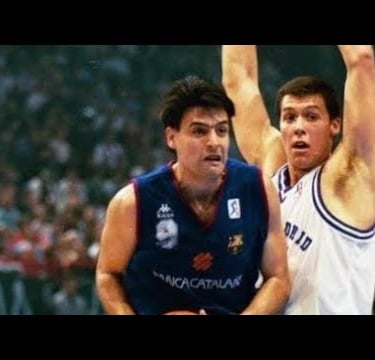
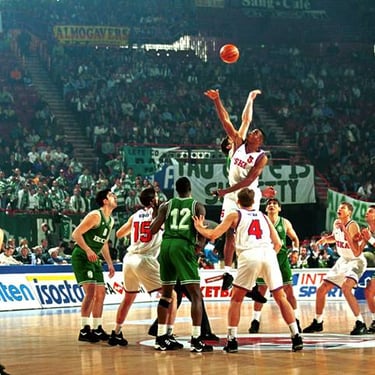
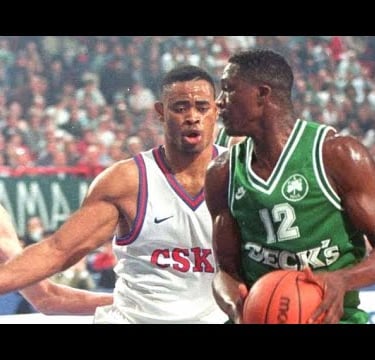
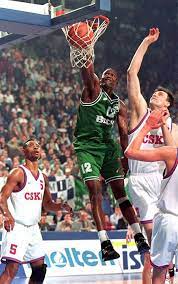
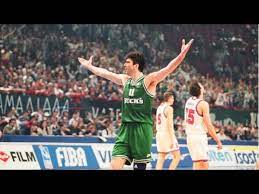
The final tipped off with Panathinaikos imposing tight defence and making smart offensive choices, gradually building a lead. Nerves were evident on both sides, reflected in a very low-scoring first half. Halftime: Panathinaikos 35, Barcelona 25. All that remained was to hold the lead. The second half, however, was a different story. Barcelona, led by Karnisovas, clawed back into the game, setting up a nail-biting finish. With Panathinaikos clinging to a 67–66 lead and 36 seconds left, Giannakis had the ball. The “Dragon” tried to run down the clock to deny Barcelona another possession. Then, disaster - or so it seemed. Giannakis slipped with the suspicion of a foul and Barcelona’s Galilea grabbed the ball. What followed was pure chaos. Let’s break it down: Giannakis lost the ball just as the shot clock expired. The game should’ve been stopped, and Barcelona awarded the ball with 4.8 seconds remaining. But the scorers’ table froze. The clock never restarted. Galilea passed to Montero, who went up for what he believed would be the game-winning layup.
Then came the miracle.
In a jaw-dropping sprint, covering nearly the entire court in just three strides, Stojan Vranković appeared out of nowhere, trampling poor Korfas in the process, and swatted the ball off the backboard in the nick of time.
Pandemonium.
The scorers realized the clock had stopped and belatedly restarted it—but it was too late. Barcelona never got another shot. The buzzer sounded. Game over. Panathinaikos exploded in celebration. Vranković, the Dalmatian giant, lay injured on the court, forever a hero. Wilkins had claimed a title in the city of his birth. The Giannakopoulos brothers saw their vision fulfilled. Greek basketball had finally reached the "Promised Land" after six painful near-misses. It was an early “Resurrection” and the start of a golden era.
But the drama didn’t end there.
Barcelona lodged a protest, arguing Vranković’s block was a goaltend, conveniently ignoring the officiating and timing blunders. FIBA partially upheld the protest, and the Catalans saw themselves as moral victors. But the record books tell a different story: Panathinaikos were crowned champions.
With Dominique Wilkins as the Final Four MVP leading the charge, the Greens proved they were ready for greatness. This was the beginning of a dynasty: they would go on to win six more European titles. But the first one? That’s the sweetest of them all—the one etched forever in memory.
